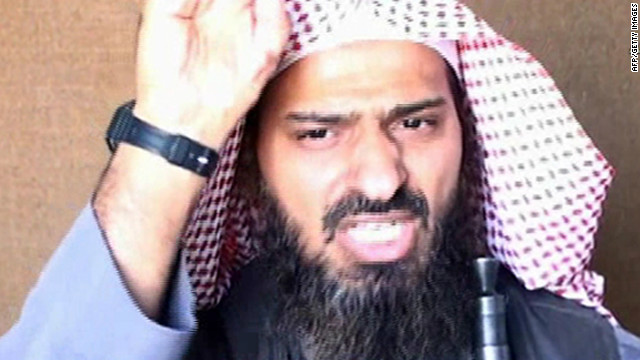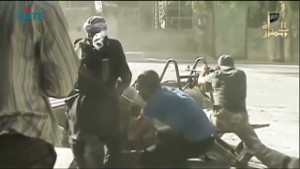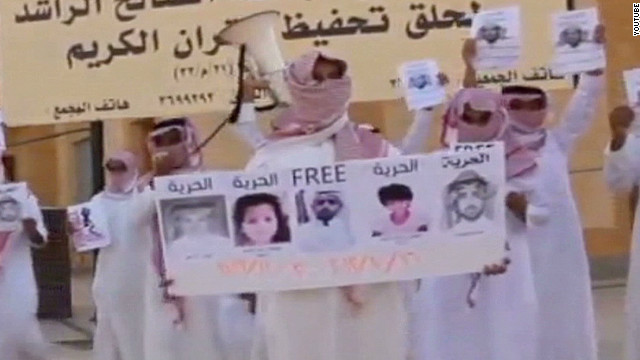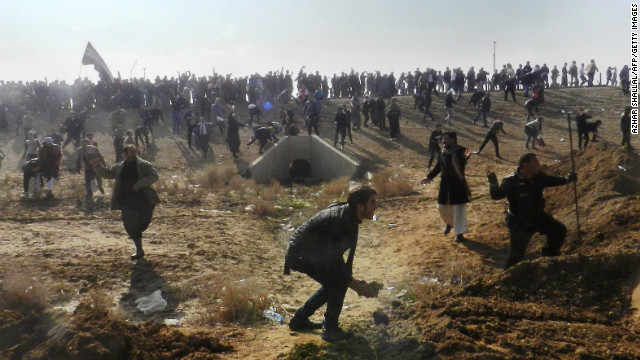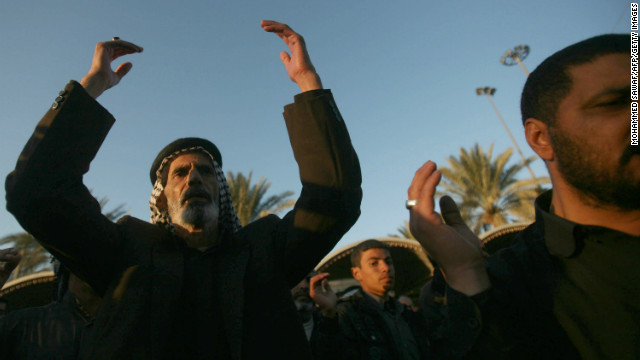 The military conflict triggered by a government crackdown on a nearly two-year-long uprising has shattered Syria’s once-proud agricultural self-sufficiency, with bread lines growing in some areas and meat and vegetable prices soaring.
The military conflict triggered by a government crackdown on a nearly two-year-long uprising has shattered Syria’s once-proud agricultural self-sufficiency, with bread lines growing in some areas and meat and vegetable prices soaring.
“I was very saddened by the situation,” said Dominique Burgeon, director of emergencies at the FAO, after returning from a mission to Syria that ended this week. “The mission was struck by the plight of the Syrian people.”
In the first detailed international account of the agricultural situation in wartime Syria, the FAO said annual wheat and barley output fell from normal levels of 4.4 million to 5.5 million tons to less than 2.2 million tons in 2011-12. Production of staple items such as poultry, fruit and cooking oil plunged by up to 60 percent in some conflict zones, such as the central cities of Hama and Homs, and Daraa in the south.
Jihad Yazigi, editor of the Syria Report business newsletter, said the FAO report echoed other disturbing provisional agricultural data for last year, such as a decline of almost a third in the cotton crop and a 50 percent drop in sales at the state fertilizer company. A surge in fighting in the northeast of the country threatened to cause more suffering by affecting the wheat and barley crops concentrated there, he added.“It’s a big issue for the population,” Yazigi said. “You will have more women forced to go into prostitution — and more children forced to beg.”
Some of the heaviest fighting of the war has taken place in Syria’s agricultural belt, including around the northern cities of Aleppo and Idlib. Rebel fighters control large areas of the countryside, meaning that food supply routes into mainly government-controlled city centers have been severely squeezed.
Most of the 10 million Syrians who live in rural areas — almost half the country’s peacetime population — have livelihoods linked to agriculture. Many now face severe difficulties in getting fuel and equipment, as well as the risk to their lives of working in the fields.
Although some observers said one cause of the uprising against Assad was a severe 2008 drought that decimated rural communities and drove people to poor urban suburbs, analysts said the latest war-related food shortages would not necessarily harm the government.
“The regime probably still has the ability to secure what it needs for its own constituency from the diminished supplies,” said David Butter, a Middle East economic specialist at Chatham House, a think tank in London “The economic and physical [distribution] infrastructure is probably still more in regime hands than in rebel hands.”
The war has brought an abrupt end to Syria’s two decades of near self-sufficiency in wheat, the country’s main carbohydrate staple, even if it has in the past been forced to tap the international market during drought years.
Grain traders said Syria faces huge difficulties in buttressing its supplies with large-scale imports. Although sanctions imposed by the United States and European Union do not officially target food or agricultural commodities, restrictions imposed on Syrian banks and trading companies mean that international institutions are reluctant to finance grain imports. The grain that does make it through tends to come piecemeal directly from neighboring countries, including Turkey and Iraq.
(Chasity M.)

